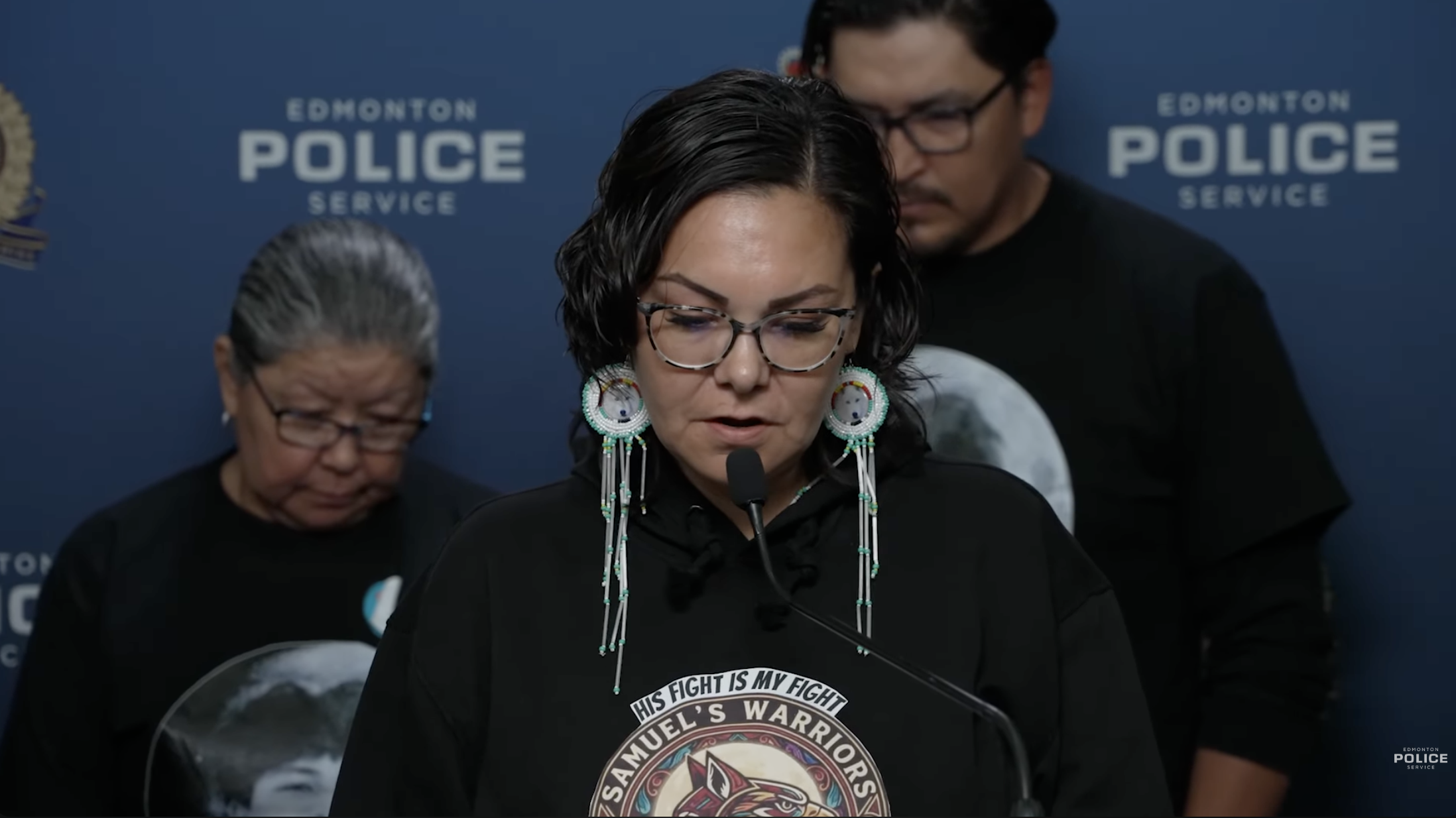Indigenous Solidarity at Fairy Creek
Deadline to apply to UBC’s Virtual Indigenous Science Experience program is June 10

In the heart of an ancient forest in Pacheedaht territory, far from cell phone service, Elder Bill Jones greeted a cohort of Indigenous leaders from the Tsleil-Waututh Nation, welcoming them to his territory.
“I welcome you all here. It is most gracious of you, most powerful, showing your hearts to me by coming all this way,” Jones announces by the side of the road, as a group of supporters pile out of a bus on May 29, 2021.
“I welcome you to our territory. I feel inadequate to tell you how important it is that we do save some of the old growth.
“This is a last struggle on our part. I think that we must now give a gesture to our great Mother, by saying ‘no’ to the colonial world, run on a colonial extraction economy. It’s at the end of it’s sucking. There are no resources left,” he told the group.
“We’re trying to save the last remnant of our own sensitivities, because when the old growth is gone, there’s no connection to our historic past … so I welcome you all.”
One person he addressed specifically was Will George of the Tsleil-Waututh Nation, who jumped on the bus in Sooke.
George was on his way to meet his family — Reuben George, Charlene Aleck and Cedar George — who were already being given a tour by Tla’amin Elder Rose Henry at the so-called “Fairy Creek Blockade” headquarters.
“We want to thank you for standing up for our hereditary rights to protect what little we have to protect,” George told Jones. “Me and my family want to come here and uplift you, and thank you for being who you are, thank you for having it in your heart to protect what we have.”
A few hours later, George joined his family in a circle of around 200 people, in the parking lot situated just outside the blockade headquarters, nestled in the Fairy Creek watershed area.
Over 1,000 people traveled to the Fairy Creek watershed, just outside of Port Renfrew on the southern end of Vancouver Island over the weekend, in a massive show of support for all of those who have been standing up to protect old-growth trees in Pacheedaht and Ditidaht territories for months.
The stand-off between environmental activists, concerned citizens young and old, and Indigenous land defenders who are breathing life into conversations around traditional governance and Indigenous sovereignty, and the forestry company Teal-Jones escalated after police started enforcing an injunction on May 17.
The injunction gave the Surrey-based company the greenlight to cut down old growth, despite growing concern and debate over the legitimacy of the First Nations authority that signed off on logging agreements with the company.
Since RCMP began enforcing the injunction, as of June 2, 158 people have been arrested.
While hundreds of people gathered at the Fairy Creek blockade headquarters, forming a circle to listen to the guests, hundreds more, led by Elder Bill Jones and hereditary chief Victor Peter, marched through a police exclusion zone to refortify a blockade that had been dismantled throughout the week.

IndigiNews has reported about arrests that took place on May 20, May 22, and May 25, and has joined a coalition of news organizations going to court to defend the media’s right to report on the conflict.
‘Coast Salish Law is truth’
Rueben George is a Sun Dance Chief and manager of the Tsleil-Waututh Nation’s Sacred Trust initiative, which has a mandate to stop the proposed Trans Mountain pipeline expansion project. Rueben has been fighting the project for the last eleven years of his life, he tells the crowd of people gathered around, after introducing himself.
“That pipeline’s still not built,” Rueben says, after sharing stories of his life’s journey — his struggles, victories and teachings — to a cheering crowd.
“We are using the tools of Spirit, and we’re explaining it in ways that they can understand. We work within our Tsleil-Waututh Law, just like Elder Bill works within their law. Coast Salish Law is truth.”
Rueben spoke of the spiritual battle, a “David and Goliath” battle, of “little Tsleil-Waututh Nation” up against a company backed by Canada and the province of British Columbia.
“Kinder Morgan didn’t have a chance to stand up to the Spirit of the Tsleil-Waututh people,” Rueben said. “The driving force of what we did was always Spirit — that’s what happened, and that’s what can happen here.”

Rueben spoke after his sister Charlene Aleck, who introduced herself in her Tsleil-Waututh language and gave her ancestral name. She asked permission from the Ancestors of the territory to share her heart, to say prayers with “these ancient ones” — the trees, and to sing a song which expressed her intentions of being there.
“I come with good feelings in my heart. I mean no harm. I come with unity with my family to the Pacheedaht and the Ditidaht, holding my hands up high for the work and the words that they still carry on to this day,” Aleck said to the crowd.

Aleck is the granddaughter of Chief Dan George, a former chief of the Tsleil-Waututh Nation, as well as a celebrated speaker, author and actor.
“My grandfather said, ‘When you take a fish, you take a life. When you get an elk, you take a life. When you cut a tree, you take a life. And it’s our responsibility to give thanks back to that elk, that salmon, to use the cedar in a good way, put your spirit into it, breathe life into it, respect it and honour it,’” Aleck said.
“That’s not what’s happening with these trees.”
Before joining the circle, Aleck was brought up to “River Camp,” one of the remaining six camps set up by those opposed to logging old growth, to visit some of the ancient trees in the territory. When she was “visiting one of the grandmothers,” she said she felt a deep sense of gratitude, and a deep sense of mourning a great loss.
“There was that sorrow, and I left my tears up there by our grandmother,” Aleck said. “But that gratitude that I felt was each and every one of you that are here, using your voice, your power, and your gift, for them.”
“I see a lot of little ones,” Aleck said, pointing around the circle. “They’re so blessed to be here. They’re going to carry this for the rest of their lives.”
Author
Latest Stories
-
‘Bring her home’: How Buffalo Woman was identified as Ashlee Shingoose
The Anishininew mother as been missing since 2022 — now, her family is one step closer to bringing her home as the Province of Manitoba vows to search for her
-
Samuel Bird’s remains found outside ‘Edmonton,’ man charged with murder
Officers say Bryan Farrell, 38, has been charged with second-degree murder and interfering with a body in relation to the teen’s death
-
Book remembers ‘fighting spirit’ of Gino Odjick, hockey’s ‘Algonquin Assassin’
Biography of late Kitigan Zibi Anishinabeg left winger explores Odjick’s legacy as enforcer in the rink — and Youth role model off the ice













